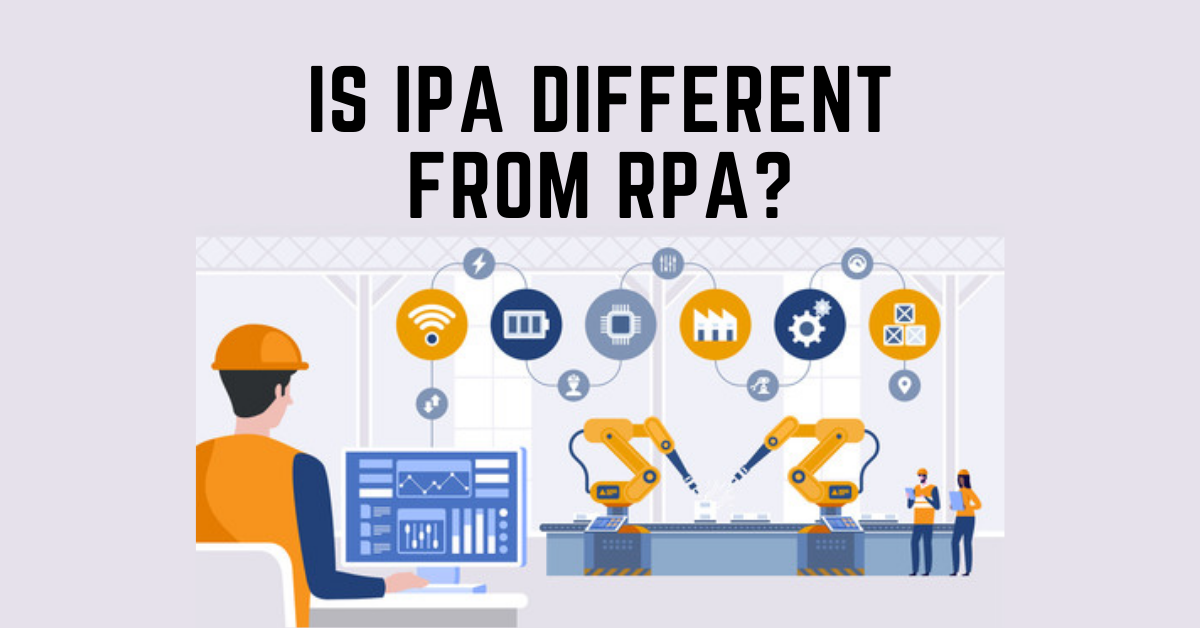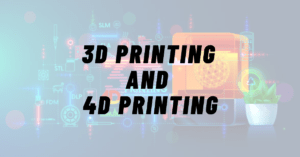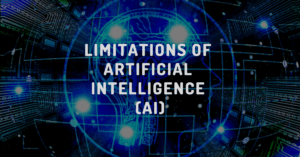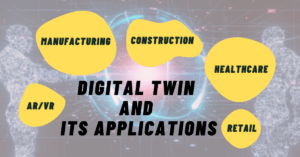Intelligent Process Automation and Robotic Process Automation refer to the technological transformations in business operations. Adaptation focuses on taking care of repetitive tasks. Both technologies allow organizations to improve efficiency, resulting in productivity and enhancing customer experience. RPA (Robotic Process Automation) is a part of IPA (Intelligent Process Automation). Both automation performs the same tasks but is different in many aspects. Let’s look at how IPA differs from RPA.
Robotic Process Automation (RPA)?
Robotic Process Automation doesn’t mean ‘Robot.’ It means software structure or a set of programs that utilizes robot-based automation. It performs human actions or administrative work. However, it needs decision-making capabilities to overcome the burden of human labor. It can only perform repetitive tasks with high efficiency. RPA is easier than IPA. It can achieve high administrative operations with specific knowledge about the technology.
Intelligent Process Automation (IPA)?
IPA is an updated version of RPA. It comprises Machine Learning, Natural-Language Processing (NLP), Intelligent workflows, and Robotic Process Automation (RPA) technologies. It can help to access structured and unstructured data insights. Intelligent Process Automation analyzes data to learn or perform better tasks. Additionally, IPA performs these tasks at a quick pace. It also assures reliability to increase efficiency. IPA is worthy of maintaining the dynamic nature of the world of business. Like RPA, IPA can apply to various industries, departments, and functions to enhance business efficiency.
RPA vs. IPA
Robot or not
Firstly, Robotic Process Automation is a software-based robot that automates the specific tasks of humans. Software robots can deploy at zero or low cost when there is a change in the virtual workforce. It does not affect the excellence of work carried out by RPA. Thus, Intelligent Process Automation uses extra bots, making it easier to measure resources. It’s a lifesaver, as IPA can meet emotional challenges encountered in the workplace.
Tasks
The application of RPA can automate routine tasks of business processes. In contrast, IPA performs on a large scale to bring up new technologies to RPA. Both technologies can improve productivity by increasing the efficiency of the business.
Automation of tasks
RPA is the primary business processes automation tool that helps to improve efficiency. But, IPA helps automate complex tasks of business processes. It provides new techniques for RPA, assuring automation in the changing domain of the business. RPA helps automate operations rather than automated processes. Because of complexity and duration, it limits the types of automation with its tools. If something changes in a computerized task, the bot cannot adapt and forecast it independently. But, the design of IPA is such that it mimics human activities with AI to reproduce how humans think. There are many applications of RPA in schools, retail, and other business.
Data
Intelligent Process Automation differs from Robotic Process Automation because it deals with unstructured data. It converts such data into structured data for use with RPA technologies. Furthermore, Robotic Process Automation uses those structured data to perform end-to-end encrypted tasks. These technologies are very different, but both can work together to optimize business processes. RPA technology operates well with data analytics, records, and customer onboarding. Organizations use IPA to capture and extract data from onboarding documents with ease. It helps in reducing wait times and improving customer experiences.
User Interface
Generally, RPA tools operate the user interface to capture data and manipulate applications. As humans do, IPA can make these processes easy, durable, and productive. Moreover, it can also reduce human error and free up humans for other complicated jobs.
Technology
Lastly, RPA is a technology used with Artificial Intelligence and screen scraping technologies. It helps in automatic back-end business. In comparison, IPA brings innovative technologies like Natural Language Processing (NLP), Machine Learning, and Data Extraction.
Conclusion
The difference between Intelligent Process Automation and Robotic Process Automation discussed above explains both technologies. Implementing both together would bring innovation to the business world, for instance, manufacturing, finance, utility, healthcare, etc. The business automation system includes scripting tools, process automation, and artificial intelligence tools. As a result, this would create new paths to success. It’s like a combination of digital technology that manages and automates business work. Knowledge of the difference between these technologies can help make the business successful.
You can visit our Blogs & Write-ups section for short write-ups on different topics.
For short posts on different articles, you can visit our Instagram page: @trainthelearner
[This article is written by Erum Khaliq during Train the Learner’s four weeks Training Program as an Article Writer]




